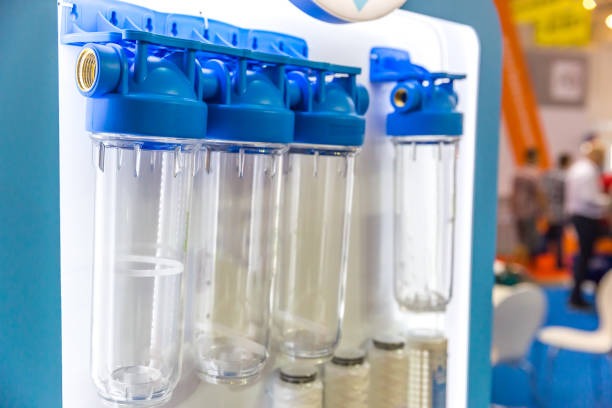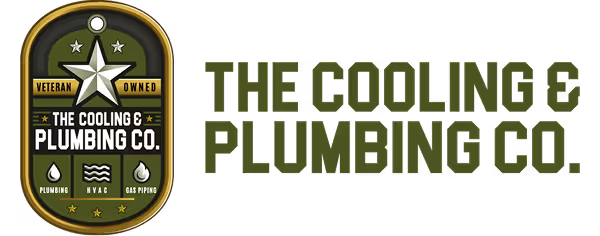Water Conditioner Installation in Sun Lakes, AZ
Hard water is a common issue across the Phoenix East Valley, and Sun Lakes homes experience it regularly. High levels of calcium and magnesium produce scale that shortens appliance life, clouds glass and fixtures, raises energy use in water heaters, and reduces soap performance.

Why water conditioning matters in Sun Lakes, AZ
Sun Lakes sits in a desert water region where groundwater and municipal supplies often carry moderate to very hard water. The local climate - high temperatures and heavy irrigation use - increases scale risks because evaporation leaves mineral deposits more quickly on outdoor fixtures, irrigation systems, pools, and inside water heaters. Choosing the right water conditioner protects plumbing, reduces spotty glassware and fixtures, and improves appliance efficiency.
Types of systems: salt-based softeners vs salt-free and template-assisted technologies
- Salt-based ion-exchange softeners
- How they work: Exchange calcium and magnesium ions for sodium or potassium, removing hardness from the water.
- Best for: Homes needing full softening for laundry, bathrooms, and to eliminate scale completely.
- Tradeoffs: Adds sodium to water, requires salt refills, periodic regeneration that uses water, and a drain connection.
- Salt-free conditioners (including template-assisted crystallization - TAC)
- How they work: Do not remove minerals. TAC media converts hardness ions into harmless microscopic crystals that stay suspended and do not adhere to surfaces.
- Best for: Homeowners who want scale control without salt, those on well water with drain restrictions, homes with septic systems, or irrigation where added sodium is a concern.
- Tradeoffs: Does not lower total dissolved solids (TDS) and does not produce the same “soft” feel when washing as ion-exchange systems.
- Other technologies
- Catalytic media, polyphosphate feeders, and electronic descalers exist. Many are used as point-of-entry pre-treatments or in combination with other systems. TAC and ion-exchange remain the most proven options for whole-house conditioning.
Ideal use cases by Sun Lakes homeowner profile
- Families wanting best detergent and soap efficiency, spot-free dishes and softer skin: salt-based softener.
- Homes on septic or with irrigation systems, or where municipal rules limit discharge: salt-free or TAC.
- Older plumbing and water heaters with heavy scale deposits: salt-based softeners for aggressive scale removal.
- Low-maintenance preference and concern about salt handling: TAC salt-free systems.
Site assessment and system sizing
Proper sizing ensures the system performs reliably and fits your plumbing layout. A professional assessment in Sun Lakes typically includes:
- Water hardness testing (grains per gallon - gpg).
- Flow rate evaluation (peak flow in gallons per minute - gpm).
- Household size and daily water usage (industry standard uses around 75 gallons per person per day as a planning reference).
- Space availability, plumbing access, drain location for salt systems, and electrical access if needed.Sizing examples (illustrative):
- Calculate daily hardness load: household members x 75 gpd x hardness (gpg) = grains per day.
- Select resin capacity for salt-based systems so regeneration frequency is acceptable (many homeowners prefer weekly regeneration).
- For salt-free TAC systems, match treatment capacity to household peak gpm to ensure adequate residence/contact time with the media.
Typical installation steps
- On-site inspection and water test to confirm hardness and flow.
- Select the appropriate system and verify placement (garage, utility room, or protected outdoor area).
- Shut off main water and drain lines as necessary.
- Install bypass valve and mount the conditioner on the main line; connect drain and brine tank for salt systems.
- For salt-based units: program regeneration cycle and add initial salt load.
- For TAC/salt-free units: flush media as required and ensure proper plumbing alignment.
- Post-installation hardness check and homeowner orientation on basic maintenance and bypass use.Most residential whole-house installations are completed within a single day, depending on complexity and any required plumbing modifications.
Low-maintenance care and expected lifespan
- Salt-based softeners:
- Refill salt every 4-8 weeks depending on household use.
- Clean brine tank yearly and inspect for salt bridging.
- Resin typically lasts 10-15 years; sanitization or resin replacement may be needed if bacterial growth or iron fouling occurs.
- TAC / salt-free conditioners:
- Replace media cartridge or media bed every 5-10 years depending on manufacturer recommendations and local water conditions.
- Minimal ongoing maintenance; periodic visual checks and pre-filter replacement if installed.
Annual inspections are recommended to verify performance, check for leaks, and clean pre-filters. In Sun Lakes, consider a pre-filter to capture sediment from well sources or local mains and protect the media or resin.
Benefits for plumbing, fixtures, and appliances
- Reduced scale buildup inside water heaters, extending their life and improving energy efficiency.
- Fewer spots and mineral deposits on faucets, shower doors, and glass.
- Improved dishwasher and washing machine performance and longer appliance life.
- Salt-based systems provide noticeable softness for skin and laundry. Salt-free systems prevent scale formation without altering water chemistry.
Cost considerations - what to expect
- Upfront costs: Salt-based and TAC systems can be comparable in purchase and installation price. Differences depend on system capacity and plumbing modifications.
- Ongoing costs: Salt-based softeners incur continuous costs for salt and regeneration water use, plus potential resin replacement years down the line. TAC systems generally have lower operational costs and less frequent media replacement.
- Longevity: Both types of systems offer multi-year service life when properly maintained. Total lifetime cost depends on household usage, maintenance habits, and local water hardness.
Common questions for Sun Lakes homeowners
- Will a conditioner remove minerals from my water?
- Salt-based softeners remove hardness minerals; salt-free/TAC systems change the form of hardness so it does not form scale but do not remove minerals.
- Is softened water safe for my lawn and garden?
- Salt-based softened water contains added sodium which can affect sensitive plants and soil over time. Salt-free systems are safe for irrigation and septic systems.
- Can a conditioner be installed outdoors in Sun Lakes?
- Installing outdoors is possible but not recommended without a protective, shaded enclosure to prevent extreme heat exposure and UV damage.
- How soon will I notice results?
- Scale reduction and improved appliance performance are often noticeable within weeks. Salt-based systems will give a softer feel in laundry and bathing almost immediately.
- Do I need a permit?
- Permitting requirements vary by municipality; most Sun Lakes residential installations do not need special permits, but a professional assessment will confirm local rules.
Choosing the right water conditioner for your Sun Lakes home depends on your water chemistry, household needs, space, and maintenance preferences. An informed site assessment and accurate sizing ensure the system protects plumbing and appliances while matching your lifestyle and local conditions.






